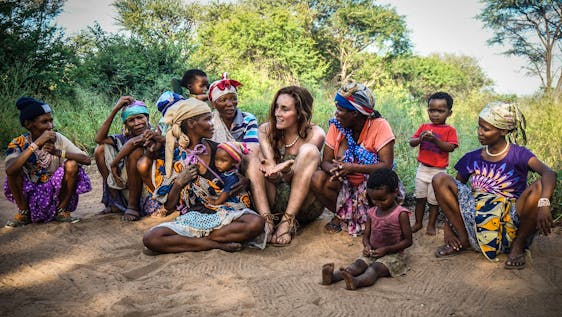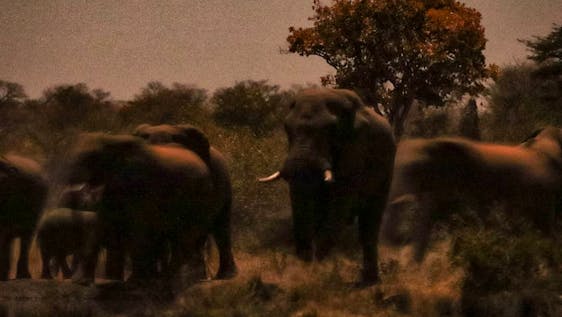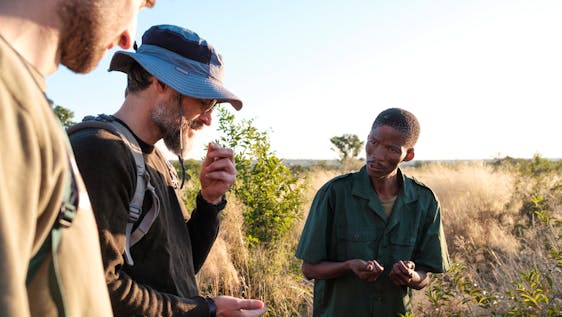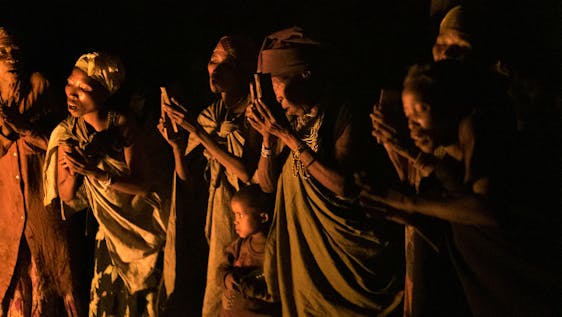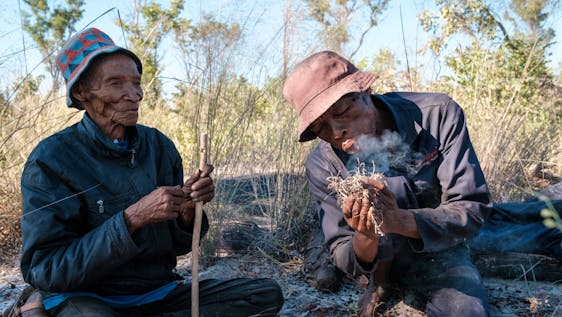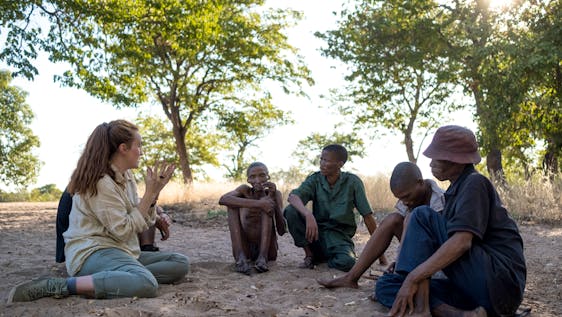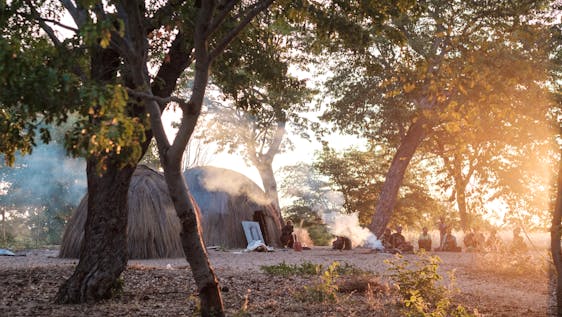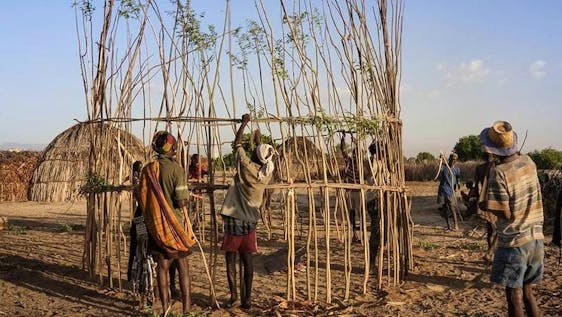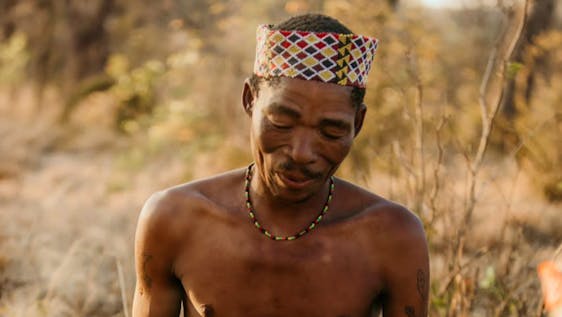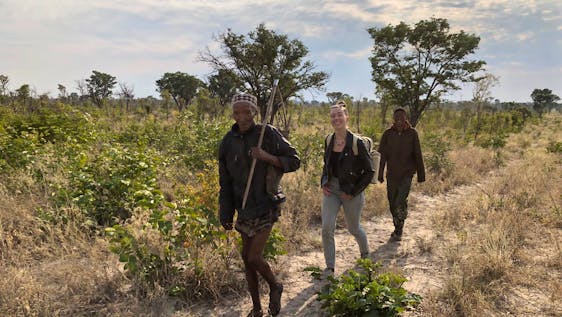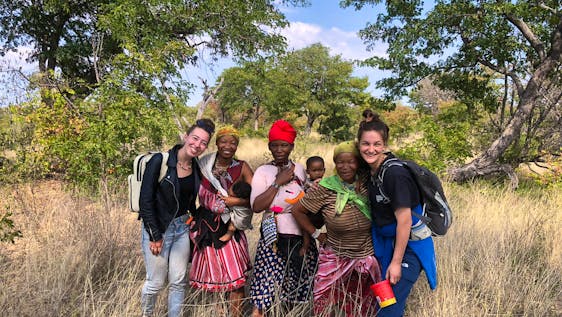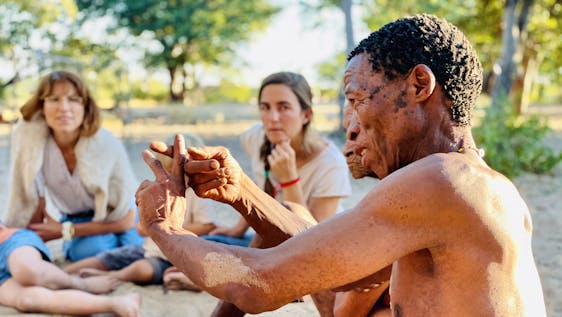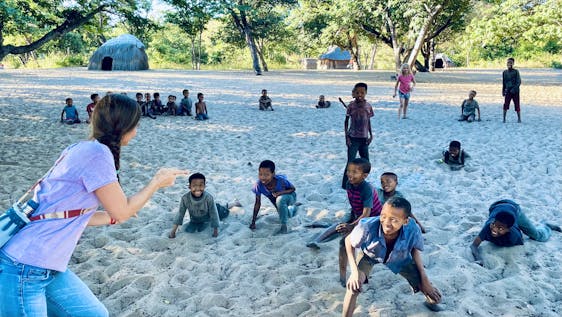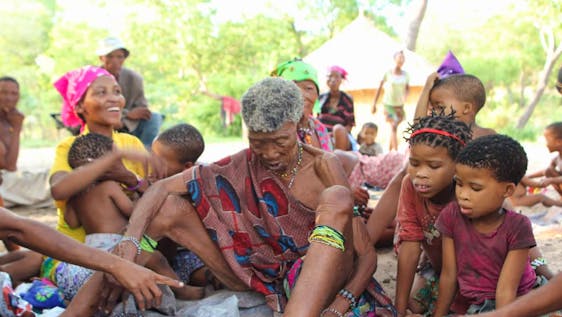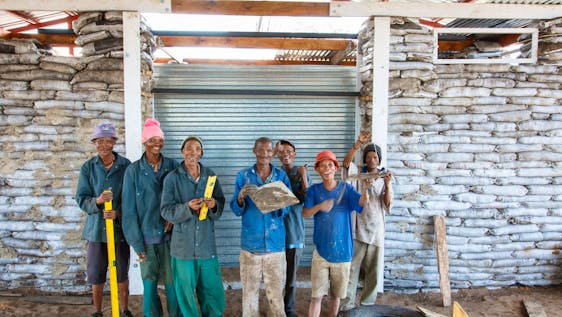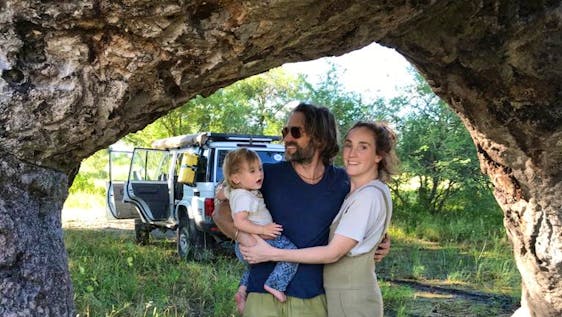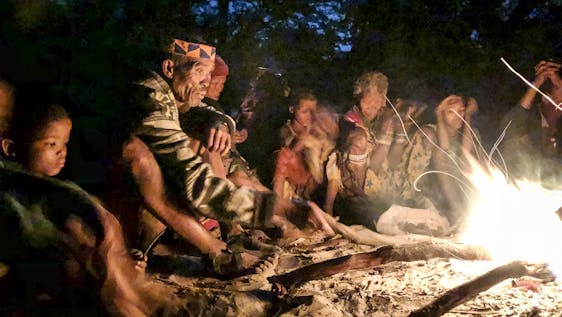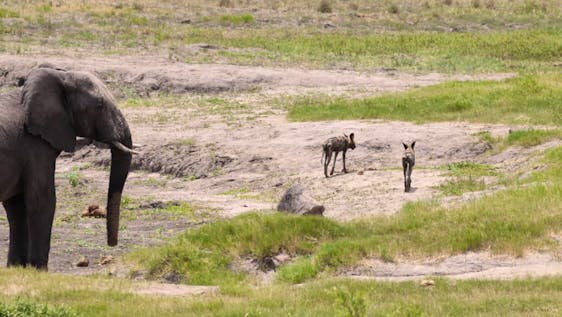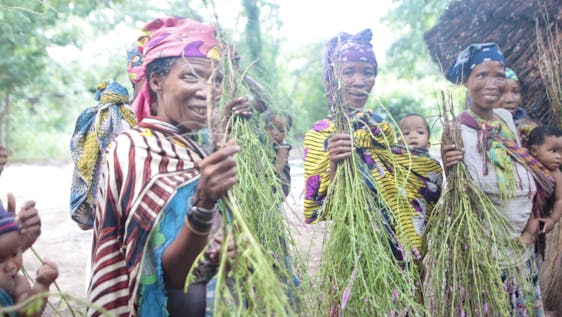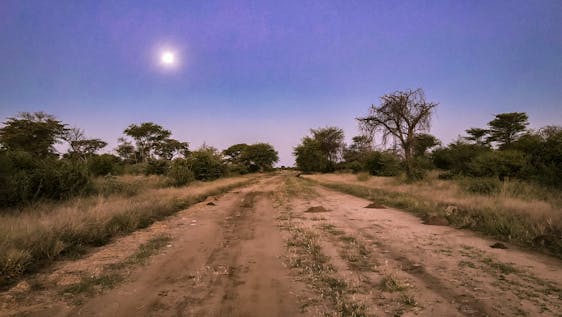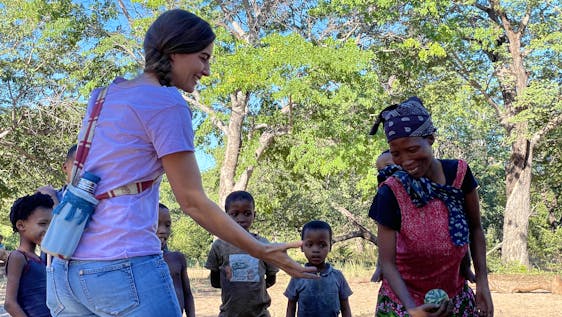Nhoma Safari Camp is a tourism accommodation in the wild, unfenced North-East corner of Namibia.
The camp is experience-oriented, and collaborates for these with the indigenous village of Ju/'hoan San people, who live about 300 meters away. Profit generated through tourism sustains both the lodge and the village nearby. Ideally, in a pre and post corona era, it creates an income for the village of 150 people to stay on their ancestral land, and continue to live remotely and self sustaining by means of a partly hunter-gatherer way of life.
This symbiosis allows them to stay remote on their ancestral land and continue a partly hunter-gatherer way of life.
The camp was set up in 2007, first for small overnight excursions with tourists and grow over the years in to a permanent tented camp.
In 2020, after a 3-year long bureaucratic struggle, the camp was sold and changed ownership.
We, Flora, Moritz and our one-year-old daughter Indigo, are a young family who just took over the camp, as the previous owner wished to retire.
Moritz has experience as a sustainability manager on other lodges and had a course for permaculture designer. He happily can put these 2 skills now in practise at the camp here. He was involved in a permaculture project in the Caprivi region with San people in 2012.
Flora has a background in Fine Arts. Through a collaboration project with the San people regarding their indigenous footwear, she ended up in Namibia and spend the past 6 years on and off working together with them to revive their traditional sandals into a small scale production set up.
The happiest here of all is Indigo, our little toddler who spends her time free-roaming around the camp or playing with the other kids in the local village.
The set up of the camp
The camp is build on a dune, overlooking the dry riverbed. It is a sandy area but tree savanna with many bushes, high grasses and big trees. The camp is close to a national park which has little visitors due to its wildness and remoteness. Because of that, elephants are often around, as well as kudu's, wildebeest, the endangered wild dogs, hyenas,...
The buildings are quick-fix built with corrugated iron or canvas sheets on wooden decks. Water is provided by a borehole. The piping and plumbing has to be partly renewed and repaired.
The off-grid camp itself has been build by the previous owner without a coherent plan, although it has tremendous potential to be a magical place. It exists of 10 canvas safari tents on wooden decks for guests, 4 basic campsites, a corrugated iron manager house, a central thatched roof open lounge, a kitchen and some corrugated iron store rooms and tool sheds.
Water is provided by a borehole, piping and plumbing is in the process to be partly repaired and upgraded. The electricity is mostly provided by solar panels and batteries, but it is not strong enough for us to be fully operational without the generator, that is why our first big investment was a bigger, stronger solar system to run everything on.
Our mission
Generally, we aim to redesign our 7 hectare area based on permaculture principles, and build with vernacular architectural vision. We see huge possibilities, because our camp is build on a fossil sand dune, and below is a dry riverbed (named Omuramba in Namibia); which is an amazing source of clay for building. Namibia is normally very low on clay, so this is a very valuable resource! Sand and clay combined gives us ample opportunities to build in a natural way with what is at hand and avoid transporting resources to the remote camp. It is our aim to create a big variety of employment opportunities for the local community. Given that we are located extremely remote, in the last remaining wilderness of Namibia, and 300 km away from the first real town, we want to become more self-sufficient.
Furthermore, the structures need to be improved: our tented houses, recycle our wastewater, get rid of the corrugated iron sheds and replace them with natural buildings, setting up a permaculture garden/ food forrest, sandbag buildings, building a sunset and a tree top deck, improving our carbon footprint and find creative solutions for the daily challenges.
Enough work for the next years to come!
The region
The region here in North East Namibia is called "Bushmanland", it's in contrast to the rest of Namibia very wild and unfenced. Vegetation wise it is very bushy though sandy, with big trees; much greener than people anticipate when they think of Namibia.
Wildlife is roaming around freely and we are regularly visited by elephants, wild dogs, many type of antelopes, porcupines, ... and very rarely but occasionally by lions or leopards. The birdlife is also great, with parrots, the beautiful lilac breasted roller and bee eaters.The camp is situated on a dune and is protected by a deep elephant ditch. Bigger wildlife does not come over this natural barrier, but we do have visits from genets, African wild cats and snakes, also dangerous ones to be aware of.
Between December and April there can be very heavy rains here, up to 1000 mm a year. During that season there are also mosquito's. Although it is a possible malaria area, there have not been any cases reported in years. Probably due to the very scarce populated region.
Your contribution
We need strong-hearted and individuals who want to get their hands dirty. Not a must at all, but any experience with eg. permaculture/ landscaping/ clay building (earth bag, adobe, rammed earth) / carpenter / plumber / electrical engineer is always more than welcome!
You will experience a once in a lifetime stay, off the beaten track within a real, still wild corner of Africa.
You should be able to work as team player, but manage a project and find creative solutions for our manifold challenges. Straightforward, we offer hard and earnest work combined with good food and drinks with African wildlife surrounding you and amazing starlight nights. You will be part of our community, therefore an openminded, social and proactive attitude would be appreciated.
The team is always enforced with skilled workers from the village.
The community is naturally very open and welcoming. We demand from our visitors utmost respect towards them as well.

